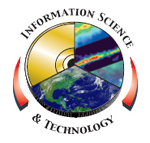
Please Note: The content on this page is not maintained after the colloquium event is completed. As such, some links may no longer be functional.
Julie Silva
Using NASA Products to Mitigate Social Unrest and Violent Conflict in the Developing World
Wednesday, December 4, 2013
Building 3 Auditorium - 11:00 AM
(Coffee and cookies at 10:30 AM)
A growing body of literature has noted the relationship between climate change, environmental scarcity, and social instability. Much of this work focuses on the economic impacts of climate stress on subsistence agriculturalist and pastoral societies, finding that environmentally induced migration increases the risk of conflict, particularly in developing countries. Other studies find that climate change threatens human security by compromising the culture, identity, and social structure of marginalized groups living in highly resource dependent societies. Understanding both the economic and social aspects of vulnerability and how they interact with climate change and extreme weather events has the potential to mitigate the risk of violent conflict. This presentation discusses some of the ways SensorWeb functionality can incorporate critical elements of human vulnerability and social stress into disaster early warning decision support tools that now use satellite, airborne, and insitu sensor data. Using the case of the Namibian Early Flood Warning SensorWeb pilot project, this presentation outlines a method for using crowd sourcing and other data collection techniques to combine socio-economic indicators with NASA products in order to better mitigate social instability and violent conflict arising from extreme weather and environmental stress.
Dr. Julie Silva is an Assistant Professor at the University of Maryland in the Department of Geographical Sciences. She received her PhD in Geography and her Masters in City and Regional Planning (MCRP) from Rutgers University. Prior to this she served as a Peace Corps Volunteer in Gabon. Her research focuses on economic geography, with a concentration on the effects of development on poverty, inequality and social change in both developing and advanced economies. She investigates how rural development strategies interact with economic and environmental processes of global change across multiple geographic scales. Her work has increasingly involved collaboration with researchers in other fields of earth science and from other countries in order to study economic activity and adaptation in the context of larger human and natural systems (e.g., climate stress and social transformation) to develop a more comprehensive understanding of the human dimensions of global change. Her work is currently funded by NSF (Faculty Early Career Development Program) and NASA (LCLUC New Investigator Program & Interdisciplinary Research in Earth Science Program). She has authored or co-authored papers in numerous peer-reviewed journals including Economic Geography; Environmental Science & Policy; Journal of Development Studies; Natural Hazards; Climate, Weather, and Society; The Geographical Journal; Journal of Environment & Development; Regional Studies; and the IEEE Journal of Selected Topics in Applied Earth Observations and Remote Sensing.
IS&T Colloquium Committee Host: Dan Mandl
Sign language interpreter upon request: 301-286-7040
